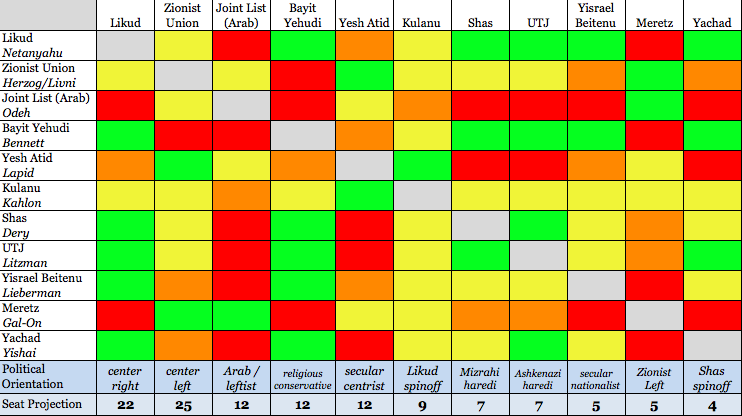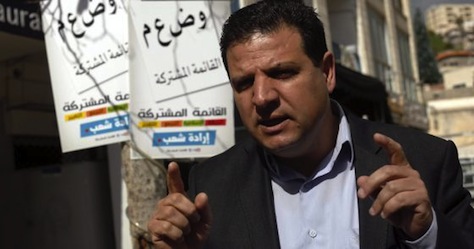No matter who wins Israel’s election tomorrow, no party is expected to win more than a fragment of the seats necessary to win a majority in Israel’s unicameral 120-member parliament, the Knesset (הַכְּנֶסֶת).![]()
That means that for days and, likely, weeks after the voting ends, Israel will be caught up in the battle to form a new governing coalition. That process will begin as soon as Tuesday, when Israel’s president Reuven Rivlin begins talking to party leaders to assess who should have the first shot at forming a coalition.
That individual, whether it is current prime minister Benjamin Netanyahu or Labor Party leader Isaac Herzog, will then have 42 days to build a government that can win at least a 61-vote majority in the Knesset.
The bottom line is that Israel and the world could be waiting a long time for a new government, though Rivlin is said to be anxious to speed the process along. That, in part, will depend on Israel’s many parties.
Rivlin, previously the speaker of the Knesset and, until his presidential election last year, a member of the center-right Likud, will have some discretion in naming a prime ministerial candidate, but it will almost certainly be the leader whose party wins the most votes in Tuesday’s election (unless a clear majority of other party leaders, over the course of presidential talks, support the second-place winner to lead the next government).
So how to keep track of the various coalition possibilities?
Suffragio‘s guide to the Israeli political parties and each party’s compatibility with every other party, as determined on a subjective scale of four degrees. Here’s what each of the colors mean: Continue reading The definitive chart to deciphering Israel’s coalition negotiations

